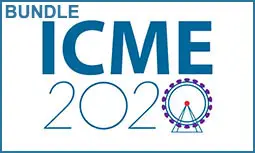LRNNET: A LIGHT-WEIGHTED NETWORK WITH EFFICIENT REDUCED NON-LOCAL OPERATION FOR REAL-TIME SEMANTIC SEGMENTATION
Weihao Jiang, zhaozhi xie, Yaoyi Li, Chang Liu, Hongtao Lu
-
Members: FreeSPS
IEEE Members: $11.00
Non-members: $15.00Length: 09:28
10 Jul 2020
The recent development of light-weighted neural networks has promoted the applications of deep learning under resource constraints and mobile applications. Many of these applications need to perform a real-time and efficient prediction for
semantic segmentation with a light-weighted network. This paper introduces a light-weighted network with an efficient reduced non-local module (LRNNet) for efficient and realtime semantic segmentation. We proposed a factorized convolutional block in ResNet-Style encoder to achieve more lightweight, efficient and powerful feature extraction. Meanwhile, our proposed reduced non-local module utilizes spatial regional dominant singular vectors to achieve reduced and more representative non-local feature integration with much lower computation and memory cost. Experiments demonstrate our superior trade-off among light-weight, speed, computation and accuracy. Without additional processing and pretraining, LRNNet achieves 72.2% mIoU on Cityscapes test dataset only using the fine annotation data for training with only 0.68M parameters and with 71 FPS on a GTX 1080Ti card.
semantic segmentation with a light-weighted network. This paper introduces a light-weighted network with an efficient reduced non-local module (LRNNet) for efficient and realtime semantic segmentation. We proposed a factorized convolutional block in ResNet-Style encoder to achieve more lightweight, efficient and powerful feature extraction. Meanwhile, our proposed reduced non-local module utilizes spatial regional dominant singular vectors to achieve reduced and more representative non-local feature integration with much lower computation and memory cost. Experiments demonstrate our superior trade-off among light-weight, speed, computation and accuracy. Without additional processing and pretraining, LRNNet achieves 72.2% mIoU on Cityscapes test dataset only using the fine annotation data for training with only 0.68M parameters and with 71 FPS on a GTX 1080Ti card.



